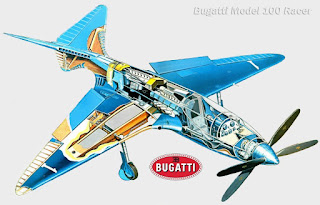Audi Diesel Engines making a come back? autosmithcar.com
Hard to believe, but there was a time when diesel wasn’t being beaten with the Budget stick. Back in 2006, when sales of diesel road cars were on an exponential growth curve, it was being lauded as the next great performance fuel. Well, by Audi at least.
On track, the R10 TDI LMP1 racer was wiping the floor with everything petrol-powered in endurance racing, courtesy of its 650bhp 5.5-litre V12 that could stretch a tank that bit further. Then two years later some slightly deranged engineers decided to bring the R10’s formula to the road. A distantly-related 6.0-litre V12 TDI was developed producing 493bhp and an absurd 738lb ft of torque and dropped into something that was neither racy nor dynamic… the big-boned Q7.
To be fair, in 2008 the same engine was also fitted to the R8 V12 TDI Le Mans concept – until the engineers remembered that lots of weight does not a satisfying supercar make, and it was quickly shelved. But the Q7 V12 TDI marched into production, the one and only car ever to use this extraordinary powertrain – or indeed a V12 diesel engine full stop – making it a true curate’s egg.
How about some more numbers to chew on? Like a kerbweight of 2,635kg (a number long-since suspected of being on the low-side once all the options were plumbed in), economy and CO2 figures of 25mpg and 298g/km, 0-62mph in 5.5 seconds and a list price of £96,295 – double that of the Q7 V8 TDI of the time. And that’s before you added another £44,350 for the Exclusive pack fitted to the version you see here. That brought 21-inch shiny alloys, lots of Nappa leather and metal trim and half a forest of walnut inlays – up to an including the brilliantly-impractical Sunseeker boot floor.
By comparison the new SQ7’s 22-inch smoked alloys and dark alcantara are positively reserved. Funny, because its performance isn’t. What it gives away in cubic capacity (4.0 vs 6.0), power (427bhp vs 493bhp), torque (664lb-ft vs 738lb-ft) and cylinder count (V8 vs V12) it makes up for with a slender waistline (2,330kg vs 2,635kg) and even more vivid acceleration (0-62mph in 4.7s vs 5.5s). Comparing original list price, the SQ7 is also a good chunk cheaper (£70,835 vs £96,295), although after options this current member of the Top Gear long-term fleet is £93,990. We’d call that a level playing field.
Once on the charge the V12’s deeper lungs offer proper eye-widening shove
In terms of sheer sense of occasion, though, the old girl’s got it. It starts (by twisting a key, how quaint) with not so much as a cough – just pure triple-treacle V12 loveliness. The surprise is, given what a monumental willy-waving (and loss-making) project this must have been (only 30 of them are currently registered on UK roads), how refined and well integrated the whole powertrain is. No low-speed jerks from the six-speed auto, no flat spots in the throttle, just a 738lb ft sized wave to surf as hard as you like.
The SQ7 with its additional electric compressor might pick up a little quicker, but once on the charge the V12’s deeper lungs offer proper eye-widening shove. Thank God for the standard carbon-ceramic brakes. Problem is, as great as it is at a cruise, the gearbox takes too long to find the next cog and changes up too early, given the gusto with which this thing revs.
Just don’t expect the same gusto in the corners, because while the steering has some meat, it’s also as wooden as the boot floor. There has been a vague attempt to control the extra mass, with stiffer and lower settings for the adjustable air suspension, but you need more than that to disguise what’s knocking on the door of three tonnes. Precisely why the SQ7 is so remarkable.
Yes, it’s a little lighter, but almost 2.5 tonnes is still no flyweight. It’s the combination of four-wheel steer and the clever 48V anti-roll suspension shared with the Bentley Bentayga, that means where the Q7 V12 sags, the SQ7 dances. Where the older car pleads with you to knock it into comfort and give it a break, the SQ7 feels keen and alert and up for some punishment. It’s an odd sensation, but an addictive one. I think they call that progress.
But before we dismiss the V12 as an over-priced, over-thirsty and over-the-hill irrelevance, let’s stop, take a step back and celebrate it for its oddness. The world didn’t need it, but it’s a better place for it. If diesels engines really are being squeezed out, it could be this one we remember above all the others.
I just read this on topgear.com. Will there be problems?
autosmithcar.com




Comments
Post a Comment